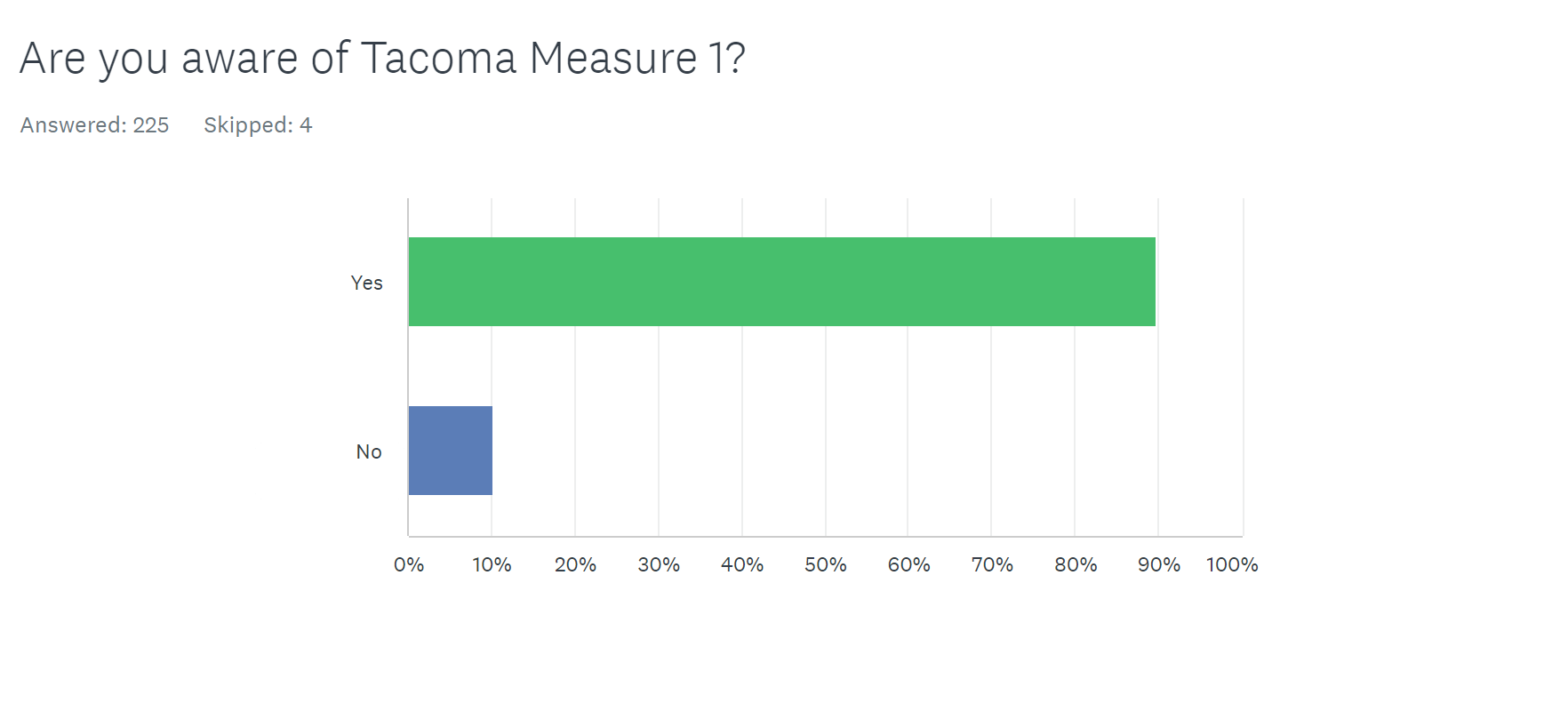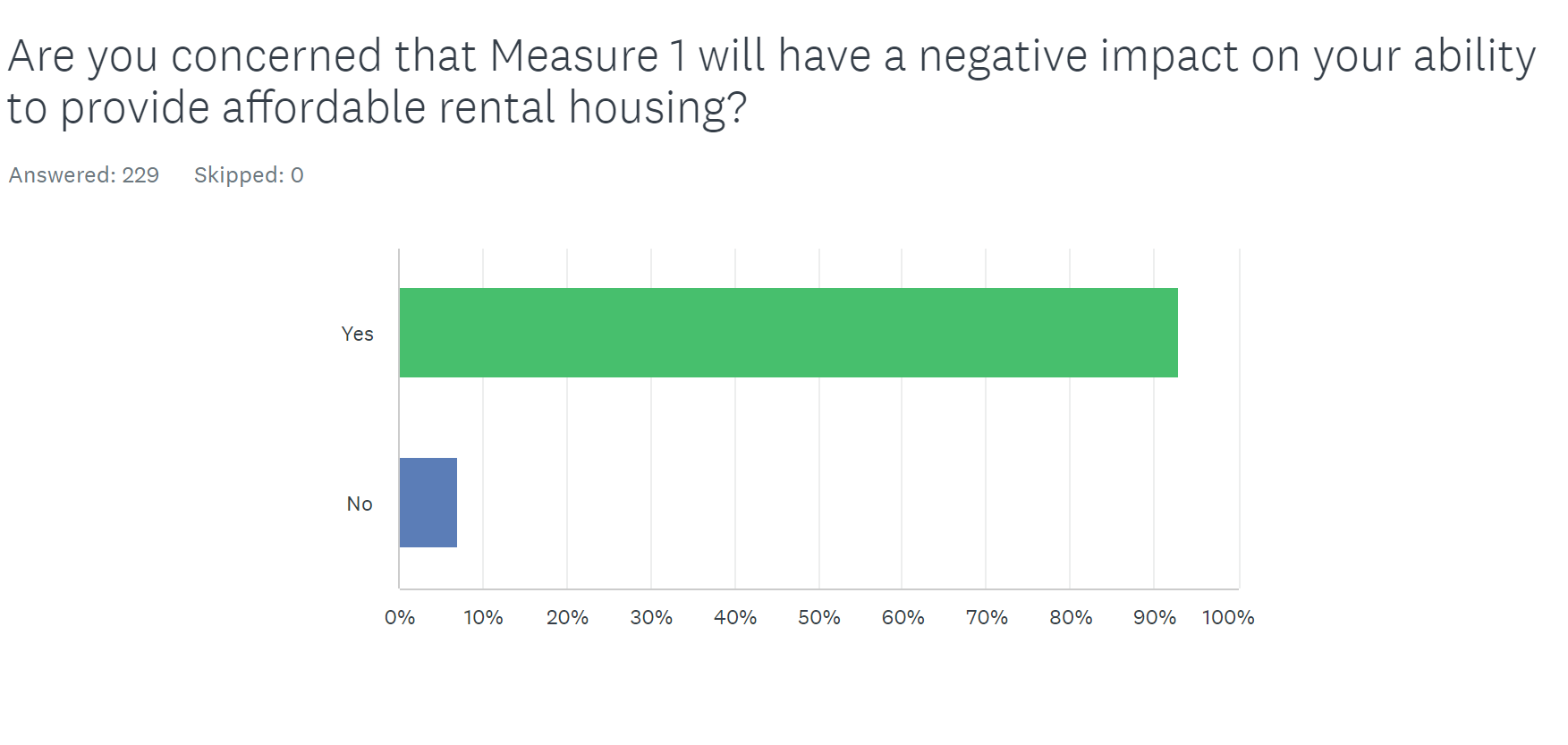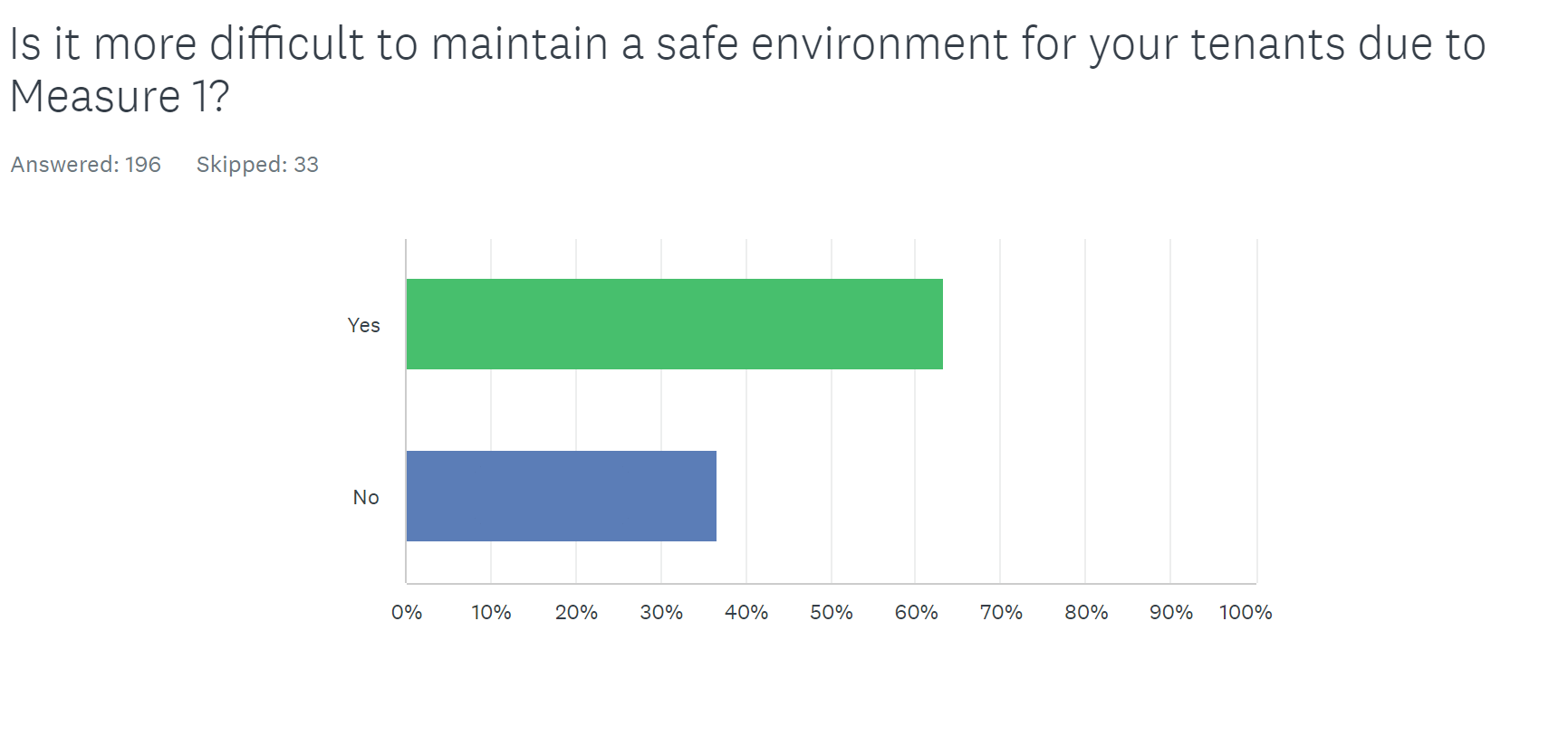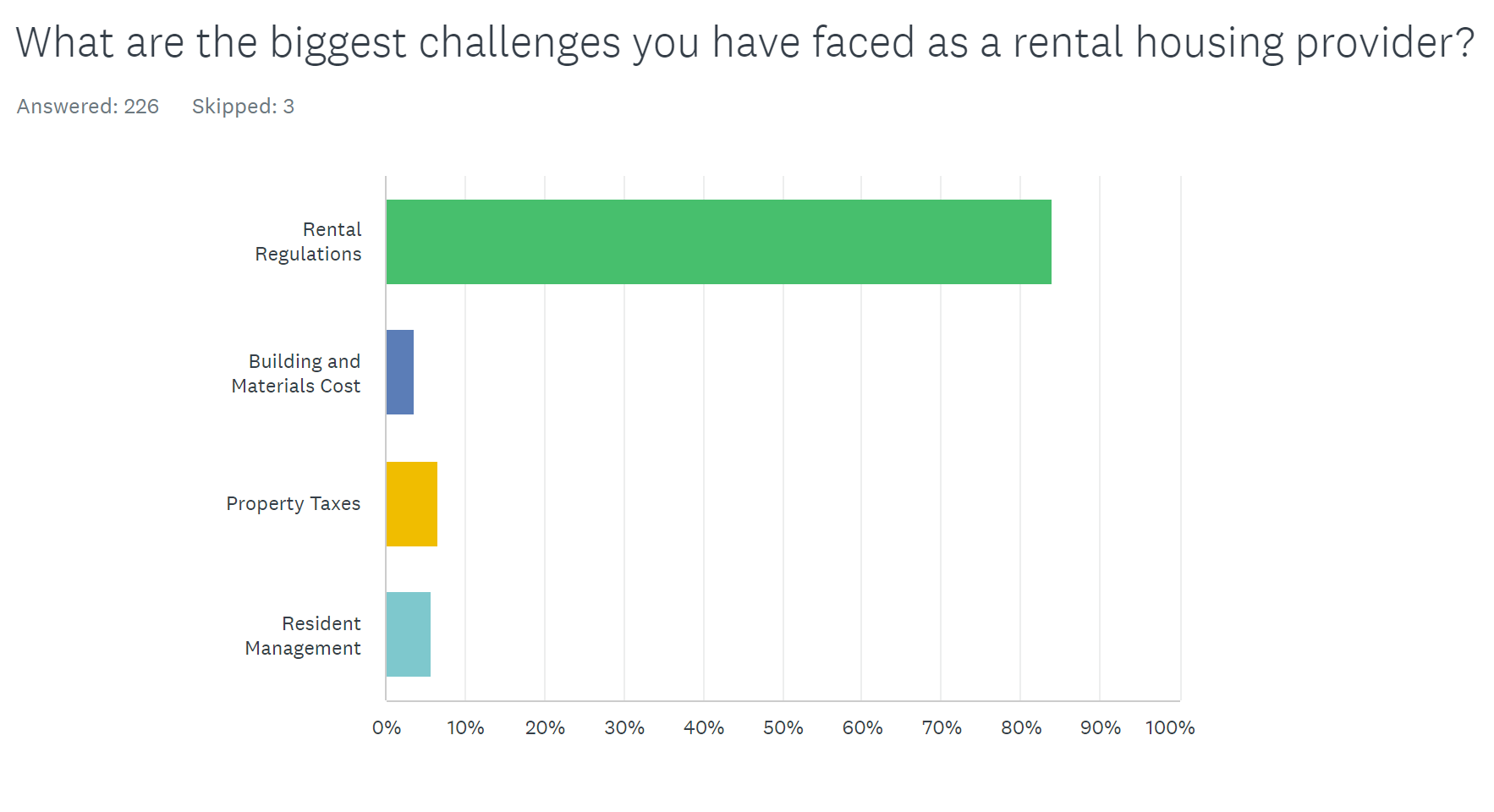TACOMA MEASURE 1: Unfair, Unsafe, and More Expensive

78% of rental housing providers in Tacoma who participated in the RHAWA survey are considering selling their rental properties and exiting the market. The exodus of small housing providers that has plagued Seattle’s rental housing market for the last half decade has made its way to the City of Tacoma thanks to the incredibly restrictive and harmful policies of Tacoma Measure 1.
In the fall of 2023, the City of Tacoma was faced with the largest threat local housing providers in the city have ever faced. The Tacoma Measure 1 ballot initia tive contained a suite of restrictive rental housing policies that emulated many of the policies that have plagued cities in King County for years. The initiative was produced by “Tacoma for All”, a far-left advocacy group supported by a multitude of socialist organizations as well as tenant labor unions. The initiative barely collected enough signatures to be included on the November ballot, but this was followed up with one of the largest and most well-funded tenant advocacy campaigns we have seen in Washington state. “Tacoma for All” claimed that this initiation would be a resounding victory with overwhelming support, however, this did not prove to be the truth.

To combat this initiative RHAWA led one of its most comprehensive grassroots efforts in history. Dozens of members volunteered to help defeat this initiative by doorbelling, distributing yard signs, and engaging with their networks to communicate the harmful impact this set of policies would have on the citizens of Tacoma. Resulting from our efforts and our partnerships with other organizations, Measure 1 proved to be much less popular than tenant advocates had anticipated. When the results came in, Measure 1 passed by less than one percent, a far cry from the overwhelming victory the proponents of this policy expected. The results of this battle sent a clear message to lawmakers that these policies are not overwhelmingly popular despite the claims of tenant advocacy groups.
From the data that we gathered in this initial survey run, it is clear that housing providers in Tacoma are, at the very least, finding these policies confusing and expensive to follow and, at worst, selling their rental properties and investing their capital in markets outside of Tacoma.
 Housing providers view Measure 1 as making housing less affordable, less accessible and less safe. Over 90% of respondents believe that Measure 1 is having a negative impact on their ability to provide affordable rental housing. While over 80% of respondents have, or plan to, increase their screening criteria requirements in response to measure 1 leading to more applications being denied.
Housing providers view Measure 1 as making housing less affordable, less accessible and less safe. Over 90% of respondents believe that Measure 1 is having a negative impact on their ability to provide affordable rental housing. While over 80% of respondents have, or plan to, increase their screening criteria requirements in response to measure 1 leading to more applications being denied.
 Measure 1 makes has a harmful impact on the safety of rental housing communities by preventing evictions of dangerous residents. One in four respondents has been unable to move forward with an eviction since the passage of measure one. This, combined with significant delays housing providers have experienced in eviction court proceedings, makes the proper operation of a rental business nearly impossible. Nearly all eviction efforts were related to nonpayment of rent.
Measure 1 makes has a harmful impact on the safety of rental housing communities by preventing evictions of dangerous residents. One in four respondents has been unable to move forward with an eviction since the passage of measure one. This, combined with significant delays housing providers have experienced in eviction court proceedings, makes the proper operation of a rental business nearly impossible. Nearly all eviction efforts were related to nonpayment of rent.
An additional regulatory and administrative burden on housing providers is increasing rental prices in the city of Tacoma. 98% of respondents believe that Measure 1 made providing housing more expensive. The increased expense of Measure 1 can be seen simply by observing how many respondents are seeking additional assistance in order to comply with the law. Over half of respondents needed some sort of additional assistance with the majority stating that they consulted with a legal professional. Legal assistance is incredibly costly, however, given the extreme policy of Measure 1 it makes sense that so many housing providers have consulted with an attorney simply to make sure they are properly following the law.
 While the Measure 1 advocates do not seem concerned with the lasting impact of their policies, choosing to instead view the passing of the ballot initiative as the final victory in achieving their goals, RHAWA is deeply concerned with how these policies are currently impacting renters and housing providers in Tacoma. RHAWA will continue to conduct this survey periodically to observe the continued impact of the Measure 1 provisions. It is inevitable that Measure 1 will continue to harm rental housing providers and RHAWA will continue this fight.
While the Measure 1 advocates do not seem concerned with the lasting impact of their policies, choosing to instead view the passing of the ballot initiative as the final victory in achieving their goals, RHAWA is deeply concerned with how these policies are currently impacting renters and housing providers in Tacoma. RHAWA will continue to conduct this survey periodically to observe the continued impact of the Measure 1 provisions. It is inevitable that Measure 1 will continue to harm rental housing providers and RHAWA will continue this fight.
We need our members’ help to push back against Measure 1 and those who hope to implement a similar policy statewide. Our ENGAGE conference in October will lay the foundation for our advocacy efforts over the next year and we are excited to share what we are working on with our membership and the industry at large. You can register for ENGAGE on our website; this event has a limited capacity and it is crucial to register now to guarantee your attendance.

